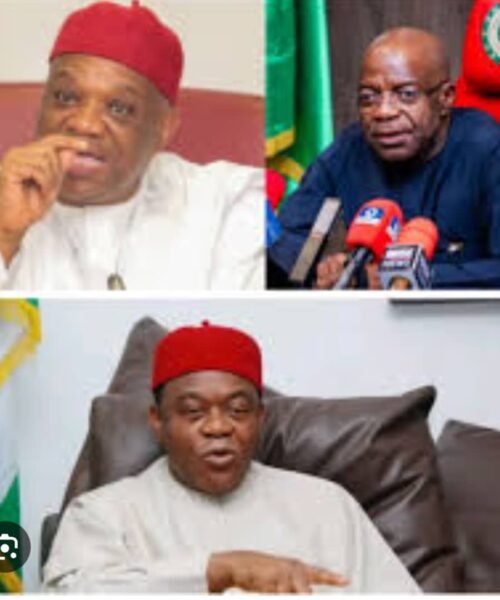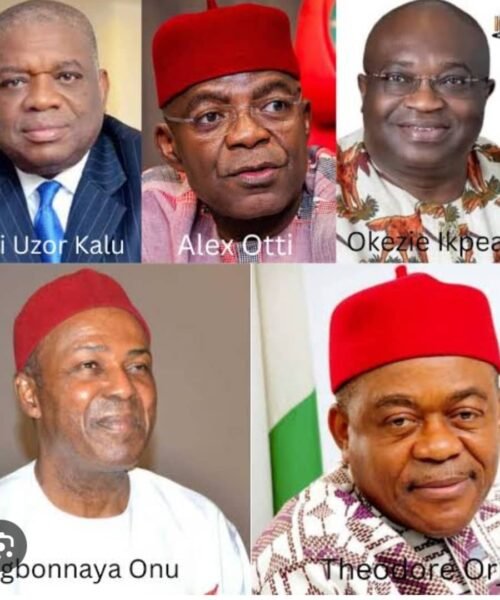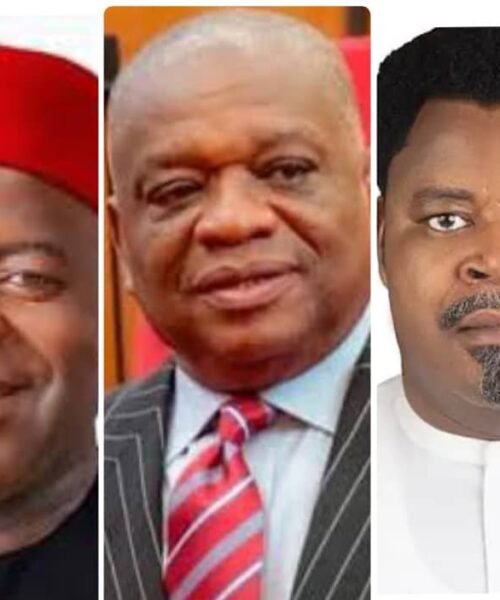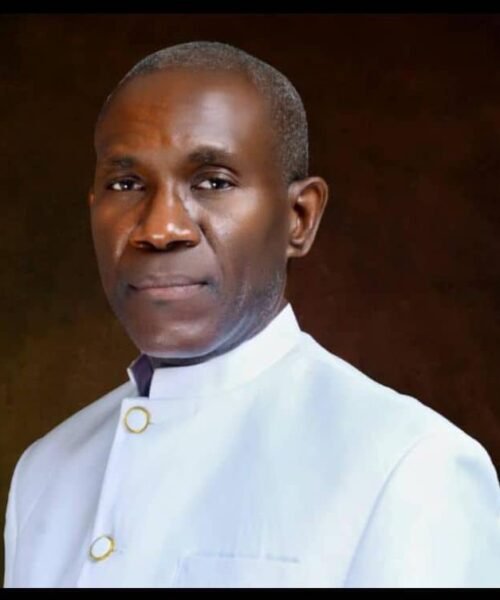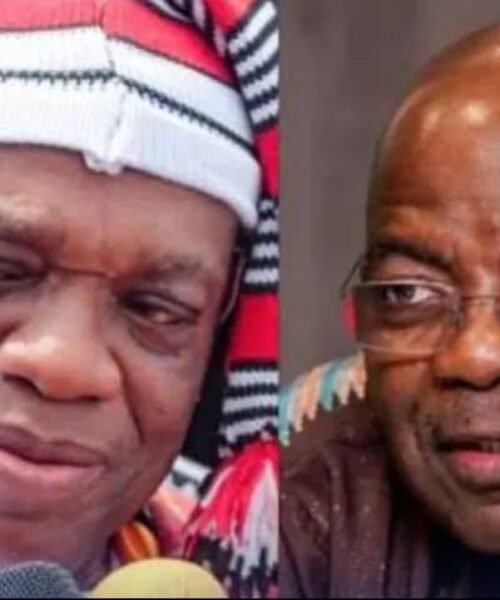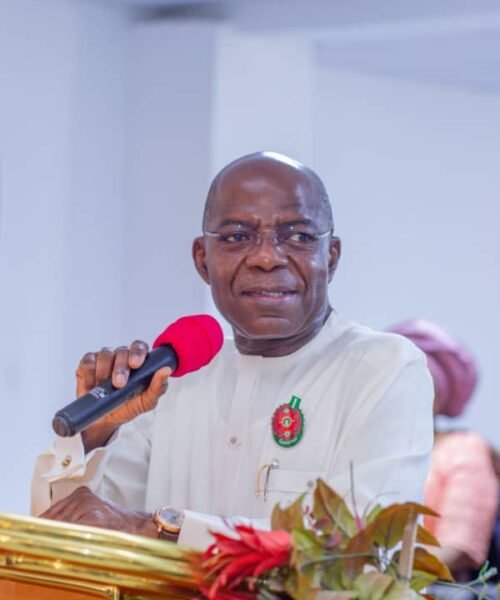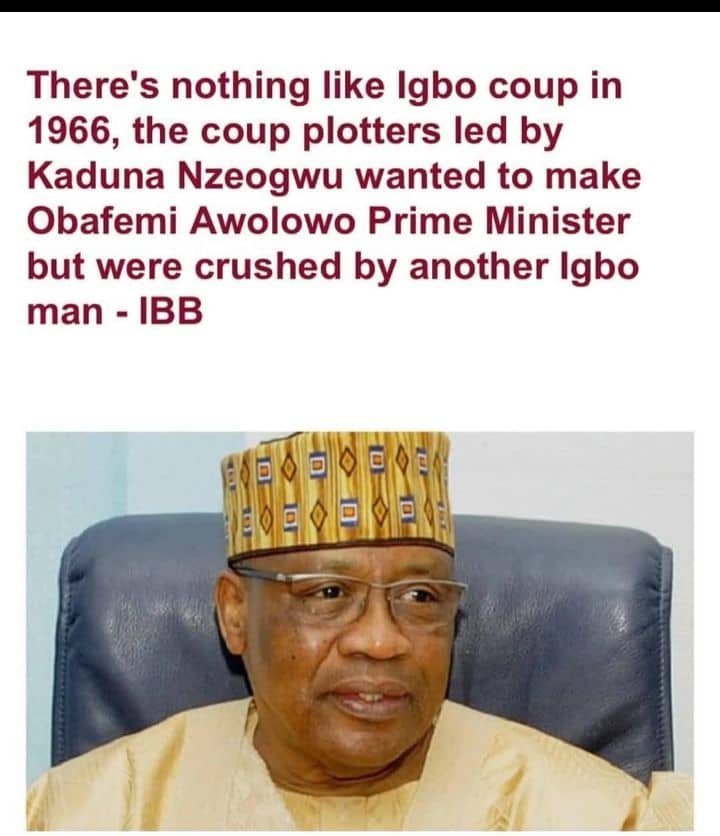
The Igbo Coup: Truth, Justice, and the Rejection of Tribalized Narratives
To defend the Igbo people is to confront a history deliberately distorted by prejudice, political expediency, and the toxic legacy of colonialism. Every historical account is written with preconceived biases, but the Igbo story in Nigeria has been uniquely mangled by tribalized falsehoods designed to legitimize their oppression. Justice delayed is justice denied—and for the Igbos, this delay has spanned generations, perpetuating cycles of marginalization and erasure.
The 1966 Coup: A Multi-Ethinic Act, Not an “Igbo Plot”*
The lie that the 1966 coup was an “Igbo coup” is a cornerstone of Nigeria’s distorted historiography. As the testimonies of Major Ademoyega, Odia Ofeimun, and Oba Olutoye confirm, the coup plotters—Yoruba, Hausa, Urhobo, Ijaw, and others—aimed to install Chief Awolowo as Prime Minister, not to elevate Igbo hegemony. Major Nzeogwu, a Delta-born officer raised in the North, symbolized pan-Nigerian ideals, yet his Igbo name was weaponized to tribalize the event. Igbo officers like General Ironsi and Lt. Col. Ojukwu crushed the coup, and Igbo soldiers like Arthur Unegbe were among its victims. This was no ethnic power grab—it was a multi-regional revolt against corruption and electoral violence in the West.
To reduce this complex moment to “Igbo ambition” is not just insincere—it is a deliberate act of historical sabotage. Tribalizing coups (then and now) serves only those who profit from division.
The Civil War: Twisted Histories and Unhealed Wounds*
The 1967–1970 war was not a “Biafran rebellion” but a tragic culmination of state-sanctioned violence against Igbos. Pogroms in the North, the failure of Gowon’s government to protect Eastern lives, and the economic strangulation of the region forced Ojukwu’s hand. Yet, for decades, the narrative has painted the Igbo as aggressors rather than victims of a genocidal campaign. Even IBB’s recent admission—that Gowon’s failures precipitated the war—exposes the hypocrisy of a system that vilifies the Igbo for resisting annihilation.
Post-war, the “No Victor, No Vanquished” slogan rang hollow. The abandoned £20 reconciliation fund, the punitive Indigenization Decree, and the systemic exclusion of Igbos from political power revealed a peace built on their surrender, not justice.
Justice for Igbos: Beyond Apologies, Toward Systemic Repair*
Today, the fight for justice must transcend hollow symbolism. Reparations, as demanded from IBB and others complicit in Nigeria’s cycles of violence, are not about vengeance but accountability. IBB’s N17bn “reward” for presiding over Abiola’s betrayal and state terror is a moral obscenity. True penance requires restitution: funding education, infrastructure, and healthcare in the Southeast, and returning confiscated property.
But reparations alone are insufficient. Nigeria must:
- Decolonize History Education: Teach the civil war’s complexities, including the Northern pogroms and the coup’s multi-ethnic reality.
- Constitutional Restructuring: End the unitary system that stifles Igbo (and all regional) aspirations. Restructure Nigeria into a true federation.
- Economic Equity: Reverse the deliberate underdevelopment of the Southeast. Invest in seaports, railways, and technology hubs.
- Political Inclusion: Dismantle the rotational presidency trap. Merit, not zoning, must define leadership.
The Power of New Media: Rewriting Narratives, Reclaiming Agency*
In 1966, the state-controlled narrative framed the Igbo as villains. Today, social media offers tools to dismantle lies. The youth must weaponize truth: archive testimonies, amplify marginalized voices, and hold platforms accountable for tribal hate speech. The #JusticeForIgbos campaign must trend globally, linking Nigeria’s oppression to global movements for reparations and minority rights.
A Call for Courage, Not Victimhood*
The Igbo spirit—resilient, entrepreneurial, and innovative—is not defined by victimhood. But resilience cannot excuse injustice. To “move on” without truth is to betray future generations. The world watches as Nigeria grapples with its demons: Will it continue scapegoating the Igbo, or confront the rot within its foundations?
Let this be the era where we stop asking, “What did the Igbo do?” and start demanding, “What is owed to the Igbo?” Justice is not a gift—it is a right. The time for deflection is over.

The world is a book, and those who do not write their own stories will be written into lies.
—Adapted from Chinua Achebe
For justice delayed is justice denied. For the living, the dead, and the unborn: stand firm.
Dr Chukwuemeka Ifegwu Eke writes from the University of Abuja Nigeria.


